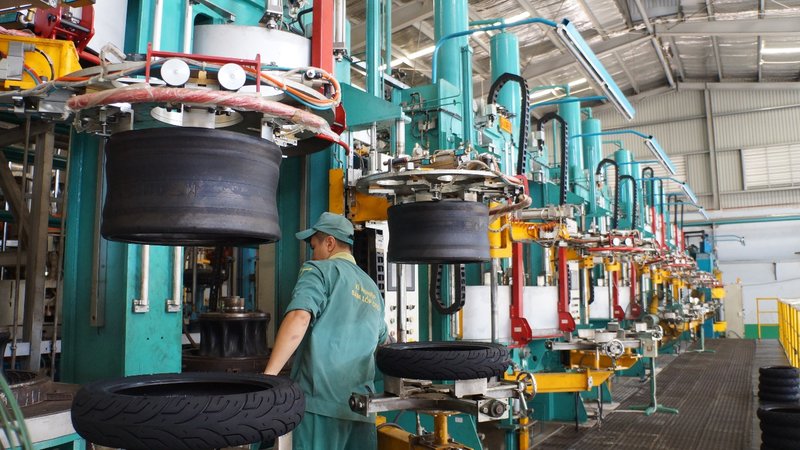Vietnam gov't plans 7% GDP growth in 2021 - 2025
The target remains a challenging task, given growing uncertainties in the global and domestic economies, including the complicated evolution of the Covid-19 pandemic.
Vietnam is expected to set an average GDP growth target of 7% in the five-year socio-economic development plan for the 2021 – 2025 period, according to Prime Minister Nguyen Xuan Phuc.
| Illustrative photo. |
The target remains a challenging task, given growing uncertainties in the global and domestic economies, including the complicated progression of the Covid-19 pandemic, Phuc said in a directive dated April 13 instructing the formulation of the upcoming five-year socio-economic development plan.
The 2021 – 2025 socio-economic development plan must be based on a comprehensive review of Vietnam’s performance in realizing the previous five-year plan, as well as on prediction of Vietnam and international economic outlooks.
PM Phuc suggested the economy would face tremendous difficulties during the 2021 – 2025 period, mainly due to unresolved internal weaknesses of the economy.
Additionally, socio–environmental issues such as aging population, income gap, natural disaster, climate change, and saltwater intrusion are putting pressure on socio-economic development.
The PM stressed priorities for the next socio-economic development plan would include:
(1) Improving the institutions of the socialist-oriented market economy, with a view for rapid and sustainable economic development on basis of macro-economic stability and inflation under control.
(2) Continuing to push for economic restructuring associated with transforming the growth model towards higher productivity, competitiveness and economic resilience; promote a comprehensive digital transformation and the establishment of digital firms with international competitiveness; improve the business environment and help spur economic recovery in the post-pandemic period.
(3) Pushing for development of economic zones and supporting industries, with a view to meeting the need of the basic production inputs of the economy.
(4) Establishing synchronous infrastructure systems in transportation, seaports, energy, IT, urban and agriculture, among others, while continuing to realize the national housing development strategy and national program of modernized farming.
(5) Utilizing efficiently investment resources for economic development; developing new economic models with the application of digital technologies; enhancing efficiency in public debt management and utilization; accelerating construction progress for project of national priority.
(6) Enhancing quality and efficient use of human resources to take advantage of the Fourth Industrial Revolution and contribute to economic modernization and integration.












